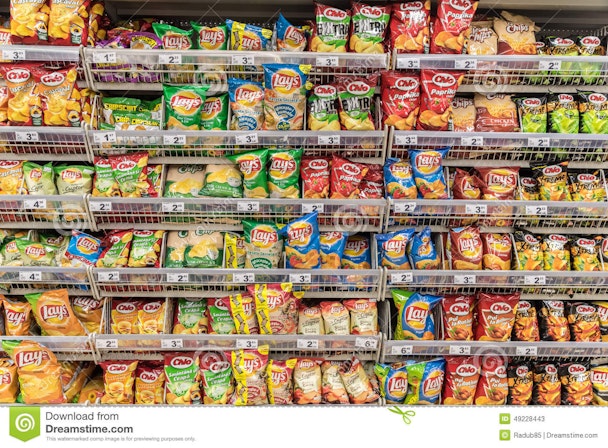Advertisers slam ‘narrow minded’ calls for pre-watershed ban on ads for snacks
Advertisers have hit back at what they believe is the failure of ministers to grasp the bigger issues affecting child obesity, branding renewed calls for a ban on promoting snacks during peak times as “narrow minded”.

The proposal for an end to ads on TV for high salt, sugary and fatty snacks until after the 9pm watershed were one of the main tactics MPs proposed to stem the consumption of unhealthy foods. The argument for such an extension is that the current restrictions miss much of the TV children watch outside specific children’s programming, like ‘family’ viewing time—for example programmes such as the X-Factor, which are shown early on a Saturday and Sunday evening, according to ministers.
Produced by the health select committee, the wide-ranging report pushes for “broader and deeper controls on advertising and marketing to children,” with tougher restrictions on advertising with graphic warnings on the side of bottles showing how many spoonfuls of sugar a drink contains also among the measures implemented.
Tighter restrictions on two-for-one deals and a blanket ban on supermarkets placing sweets and snacks at the aisles were also proposed alongside a clampdown on how cartoon characters and celebrities are used in children’s advertising. Additionally, there’s should be advertising restrictions imposed on every medium, including social media and internet games.
It’s not the first time advertisers have come under fire for how they promote snacks to kids, with rules already being implemented to prevent junk food ads appearing during childrens’ TV. And as they done in the past, have argued that tougher regulation is not the answer to an issue they feel needs a more robust solution.
“The Committee didn’t take evidence from advertising experts and its views reflect a narrow, medical perspective, said Ian Barber, director of communications at the Advertising Association, which took particular issue with the pre-watershed TV ban.
“The bigger picture is that food advertising in the UK is amongst the most strictly regulated in the world, children see far fewer HFSS ads on TV today than ever before and new rules already being considered would mean no advertising targeted at children in any media.
“Those regulations reflect the evidence as to whether advertising affects children’s preferences and diet, the answer to which is yes, but only a little,” he continued. “Proportionate regulation matters because without advertising, we stifle choice, competition and innovation and threaten funding for the programmes and content we all enjoy. A 9pm watershed is an analogue measure for a digital age that would hit programme budgets hard, even on channels with few or no children watching.”
Another core part of the review ramped up pressure for a 20 per cent levy on sugary drinks, which was ruled out by the prime minster David Cameron last month.
The Government has attempted to stem the uptake of unhealthy lifestyles through its voluntary Responsibility Deal agreements with the industry as well as its Chnage4Life marketing initiative. However, the report mused whether they were effective when the food industry is ploughing £256m on promoting unhealthy snacks.
“It's disappointing that the Committee has missed its chance to add a robustly independent voice to the obesity debate,” said Food and Drink Federation director general Ian Wright.
“The Committee has swallowed whole the agenda of the pressure group Action on Sugar. Their Report also simply endorses and reproduces at great length the recommendations already made by Public Health England. This despite the fact that, as the Report itself noted, the Committee did not subject PHE's Report to any scrutiny or questioning.
“The fact that the Report calls on manufacturers voluntarily to label 'added sugars' in products, in the form of a teaspoon graphic, when to do so would be illegal, is characteristic of a worrying lack of understanding,” he continued.

